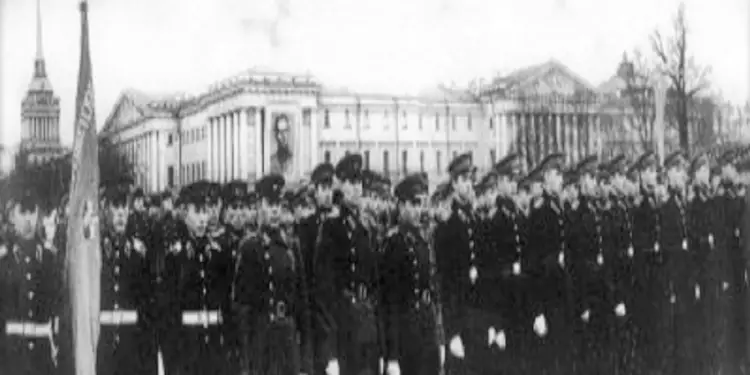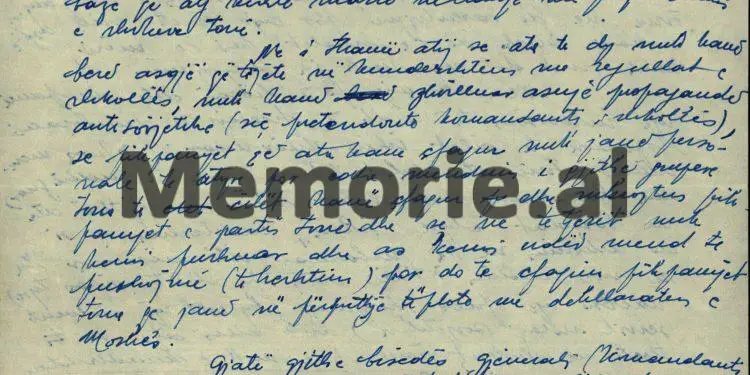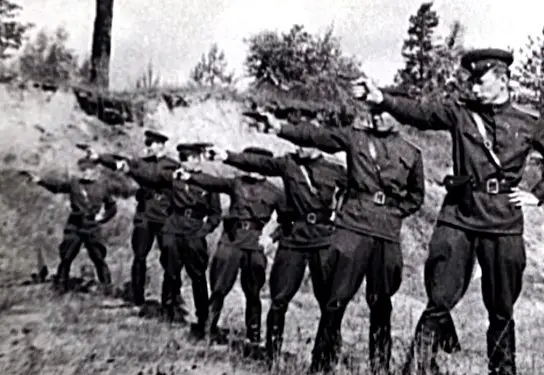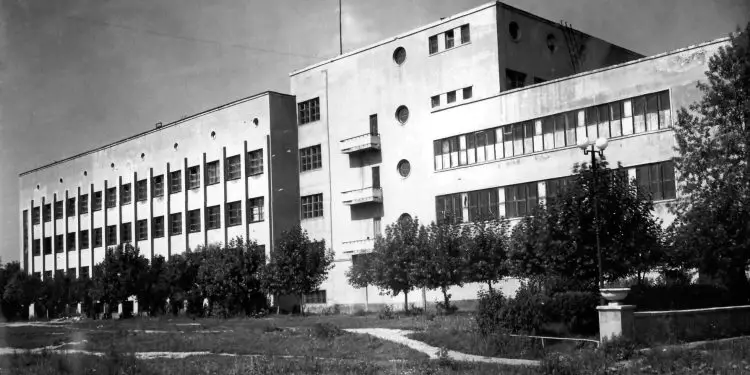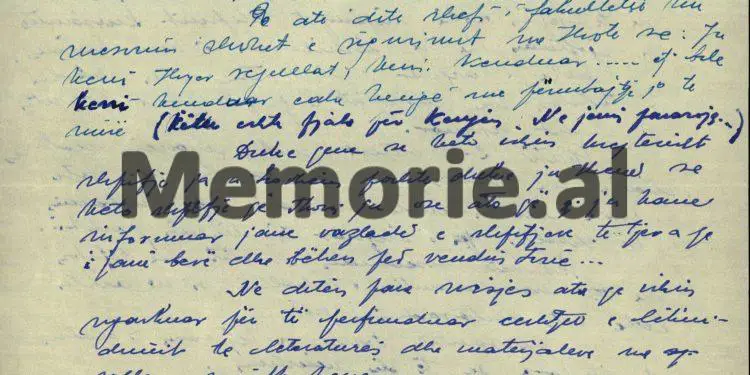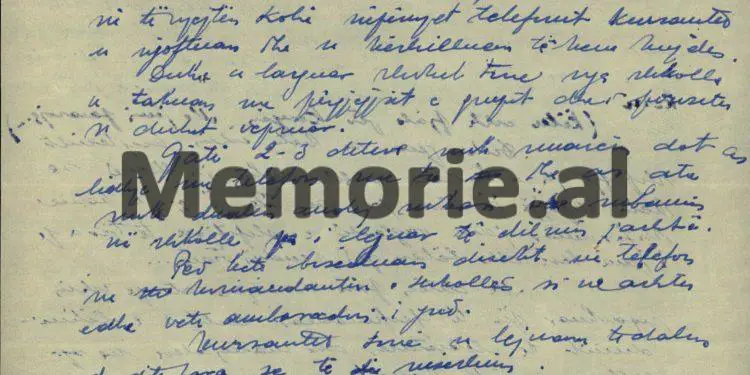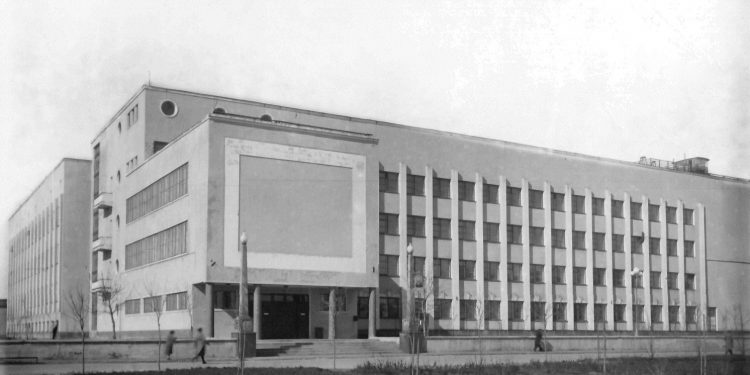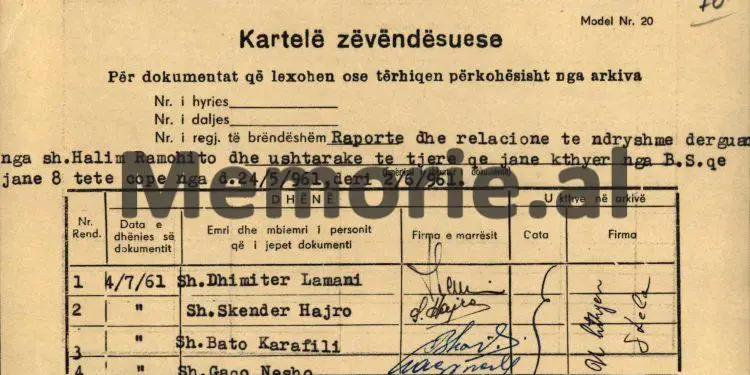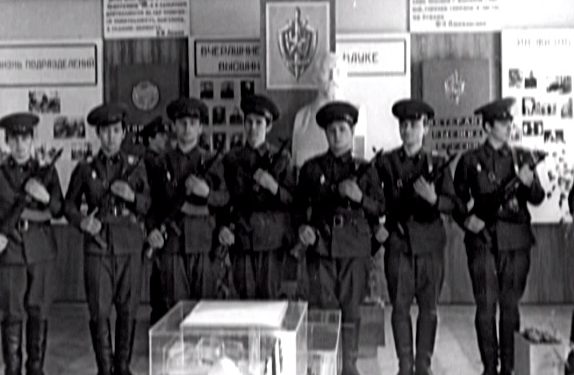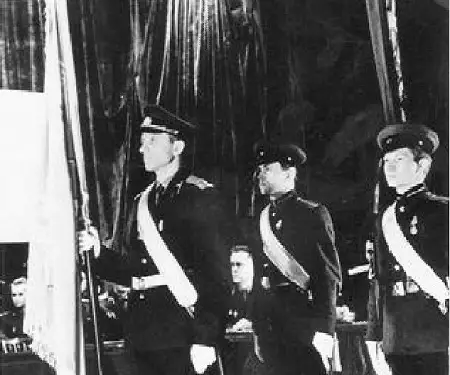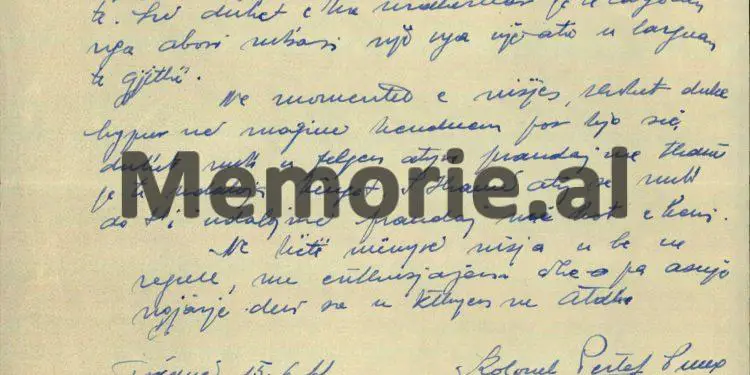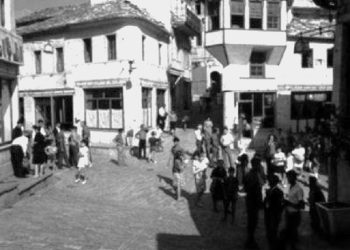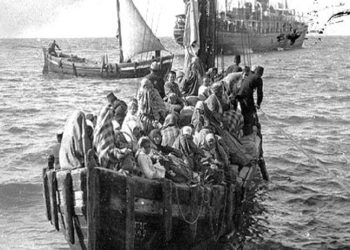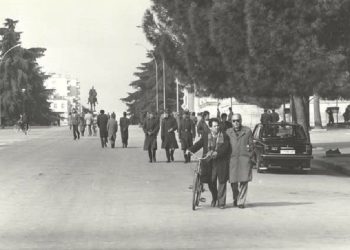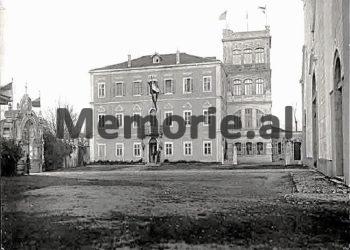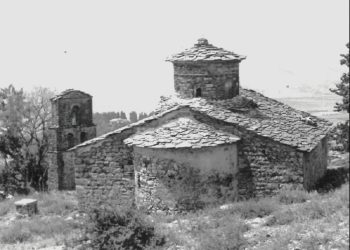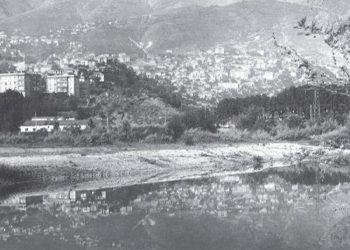Dashnor Kaloçi
Part seven
Memorie.al/ publishes some archival documents with the initials “Top secret”, issued by the Central State Archive in Tirana (Fund of the former Central Committee of the ALP) which belong to 1961 and are part of a voluminous file with letters, reports, information, reports, instructions, petitions, etc., where it is about the beginning of contradictions and the breakdown of official Tirana’s relations with the Soviet Union, which at that time was very much felt by Albanian students who were then studying in schools and the universities of the Soviet Union, who, by order received from Tirana, discontinued their studies and waited for instructions to return to Albania. The complete file of Albanian students in the former Soviet Union, where most of them, mainly those who attended the Military Academies, the High School of State Security, Police, Border, Justice, etc., had major problems and were met with many vicissitudes with the official Russian authorities, leading to the measure of arrest as well as the intervention of the Albanian military attaché in Moscow, Major General Halim Ramohito, to unblock the situation and return the Albanian military students to their homeland.
Continued from the previous issue
Report
On the return of the group of Border and Security students as well as, the Border cadets studying in Moscow.
The next day when the headmaster of our school announced the expulsion order of our two officers, I and three other friends (group leaders) went to him (the headmaster) and protested against the unjust and unreasonable decision that he had taken it on the spot, to the exclusion of our comrades.
We told him that they had done nothing to break the school discipline, and that they had not carried out any anti-Soviet propaganda. We told him, that they were not only their personal views but the opinion of all the comrades of our group, who have defended and will defend the line of our Party.
We do not intend to remain silent but we will defend our ideas that are fully in line with the Moscow Declaration. Throughout the conversation, the general, who was also the Commander of the School, tried in vain to persuade us not to engage in political talks, but to look at the school curriculum, and the discussions about the strained relations between Albania and the Soviet Union. , to leave to the respective governments.
When I heard the decision of our government that all the contingents of the Ministry of Internal Affairs, studying in the schools of the State Security Committee in Moscow, would return home, immediately together with my two friends we went to meet the general.
That day all of us left the lesson, while the general told us literally that: what we did was against the rules, as the School Command was not aware of this order.
He stressed to us that we had to go into the classrooms and continue teaching and that he could not let us leave, because in the end, you left the classrooms yourself. In the end, he instructed us Albanians to behave well with other comrades of popular democracies and not to have clashes.
Regarding this gesture of ours, we were told not to worry, as nothing happened, and that for our views they would reflect. In the evening, we noticed a great deal of interest from the comrades of the People’s Democracies, about our problem (in my opinion they should have been instructed to talk to us).
In every discussion with them, they “wondered” how we undertook this act of dropping out of school, given that our government’s decision is unfair?! While a Hungarian officer (who is a servile element to the Soviets), told a friend of ours, why they did not oppose the act of the Albanian government?! But, this officer got the answer on the spot, declaring that: “Albania is not like Hungary, as you think”.
These days, considering that our force in Moscow is large (50 people) as well as seeing the experience of sailors in Leningrad, we gathered friends and instructed them to place a guard officer in each telephone booth. We also took measures not to leave the rooms at all and not to talk to anyone, guarding against possible provocations.
On the issue of our departure, the School Command did not even set the water on fire at all. They were justified in saying that they had not received any order or orientation for your escape. In such a situation, the Albanian embassy in Moscow, took measures for our transport to the airport, cutting our tickets.
During the evening, as we were escorting the two friends who were expelled, we lined up at the school railings and started singing. That morning, when the bus came to pick them up, we started singing and cheering again. That same day the Head of the Faculty called us, criticizing us for breaking the rules and discipline of the school, shouting and singing loudly.
He even told us that we had sung songs with bad ideological content. We rejected these words of him, emphasizing that what he was saying was slander, and these low slanders were told to him by the trainees of other vassal countries from the USSR, who were attacking our country. .
The day before departure, they took us to liquidate the teaching literature materials, which created a lot of obstacles for us. On the pretext that these materials lacked a map, or that some other friends had not handed in the room keys, or that some (non-secret) brochures were missing from the curriculum inventories, and that a “Border” magazine had been lost. , which was for internal use, the school secretary ordered from above, threatened us that she would not give us the passports, without finding these teaching materials.
Likewise, a professor of the subject of Border, said to a friend of ours, that: if that magazine was not found, we will keep you here and we will not allow you to leave for your homeland, etc.
As for the other 14 cadets who were gathered in a city near Moscow, to communicate the order of the Albanian government to return home, Lieutenant Colonel Strati Vodica and three other comrades were appointed. But even these friends were not allowed to meet with the trainees or the group leaders.
For this situation our comrades were forced to report directly to the school command. At the same time, they contacted the trainees by phone and instructed them to be careful.
Before leaving school our trainees had the opportunity to meet with the group leaders. During the 2-3 days, we did not get any contact on the phone with them, nor did they get in touch with us, as they were not allowed to go outside at school.
We talked about this problem on the phone with the Deputy Commander of the school, with whom our ambassador in Moscow also spoke. Our trainees were allowed to leave two days before departure. The attitude of our trainees has been very good and on the part of the School Command, there was no attempt to divide us.
On the day of departure, the Chief of the Security Faculty, Colonel Grigorjev, had come to escort us (or rather to see how we were fleeing, as if whatever happened in their minds). As for the airport, we were escorted by Lieutenant Colonel Buritskov.
At dawn, after we all came out, we gathered at the school square, where morning after morning we did physical exercises, we noticed that none of the foreign officers or trainees had come out to escort us. Of course, this was a directive given by the School Command, so that none of the students would meet with us. But suddenly, the only ones who came out were the Vietnamese, who after talking cordially with us, we also took pictures.
Apparently, Colonel Grigorjev did not like this, who called the head of the Vietnamese group to the office. And after that moment, they left one by one. At the moment of departure, the friends got in the car singing, which apparently they did not like, so they told me to stop singing.
We said to them: We cannot stop the songs, so you are in vain. In this way, the departure to the homeland became fast and enthusiastic, and nothing happened to us until we returned to Albania./Memorie.al
Colonel
Pertef Pumo
Tirana on 15.6.1961
The next issue follows




